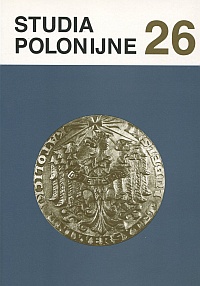Organizational Life of Polish Emigration in Belgium During the Inter-war Period
Main Article Content
Abstract
A mass emigration of Polish people to Belgium took place after the First World War. According to official data, 5 329 Polish people lived on the territory of Belgium in 1920. They were mainly miners and their families who had arrived from Westfalen. In 1938 the Polish community in Belgium increased in official statistics to 61 809 people. Most of them were employed in mining and heavy industry, only about 5% in farming.
Organizational activity during the first years of Polish emigration in Belgium faced considerable difficulties. “People from Westfalen had already had a certain dialect and not all children spoke Polish. People coming from Poland, mainly small farmers, differed in terms of cultural level because those from Austrian and German occupation had already gone to school, could read and write and had broader minds, whereas those from Russian occupation – were mainly analphabets. However, managed to erase these regional differences among Polish people.”
Polish people arriving to Belgium, “not knowing the local language were willing to associate in organizations and created groups which they usually named after some saint as their patron.” The first Polish organizations in Belgium started to appear after the First World War in 1921. They were founded mainly by Polish people coming from Westfalen in search for work. Most of Polish associations and organizations were created in 20's comprising virtually the whole Polish social life in Belgium. These organizations cared for national traditions, cultivated the maintenance of the fatherland language, transmitted Polish cultural awareness to younger generations and defended common interests in economic and social areas. Their programs were patriotically and catholically oriented. They existed in almost every bigger Polish mining colony.
These organizations had a profession-specific (e.g. associations of miners under the patronage of St. Barbara), religious (e.g. association of live rosary), cultural (e.g. circles of Polish women, theatrical and chant associations) and sport character. Despite such diverse characters, their objective was to maintain Polish life in colonies and transmitting patriotic and catholic values to new generations of Poles. They had their places in almost every bigger Polish center. Independently of the character of their activity they had a common regional management council. Later, the central management council for 5 regions was created under the name The Federation of Polish Associations and Organizations in Belgium.
The social life of Poles concentrated mainly in the Central Federation of Polish Associations in Belgium and in Central Federation of Polish Female Associations in Belgium. In 1936 their coordination was taken over by newly founded Polish-Belgian association – The Association of Co-operation with Polish Organizations in Belgium. As an initiative of Parliament Member Jackowski and consul of Poland Nagórny, The Committee of Co-operation with Polish Social Organizations in Belgium was created to support and provide spiritual care for our emigration.

